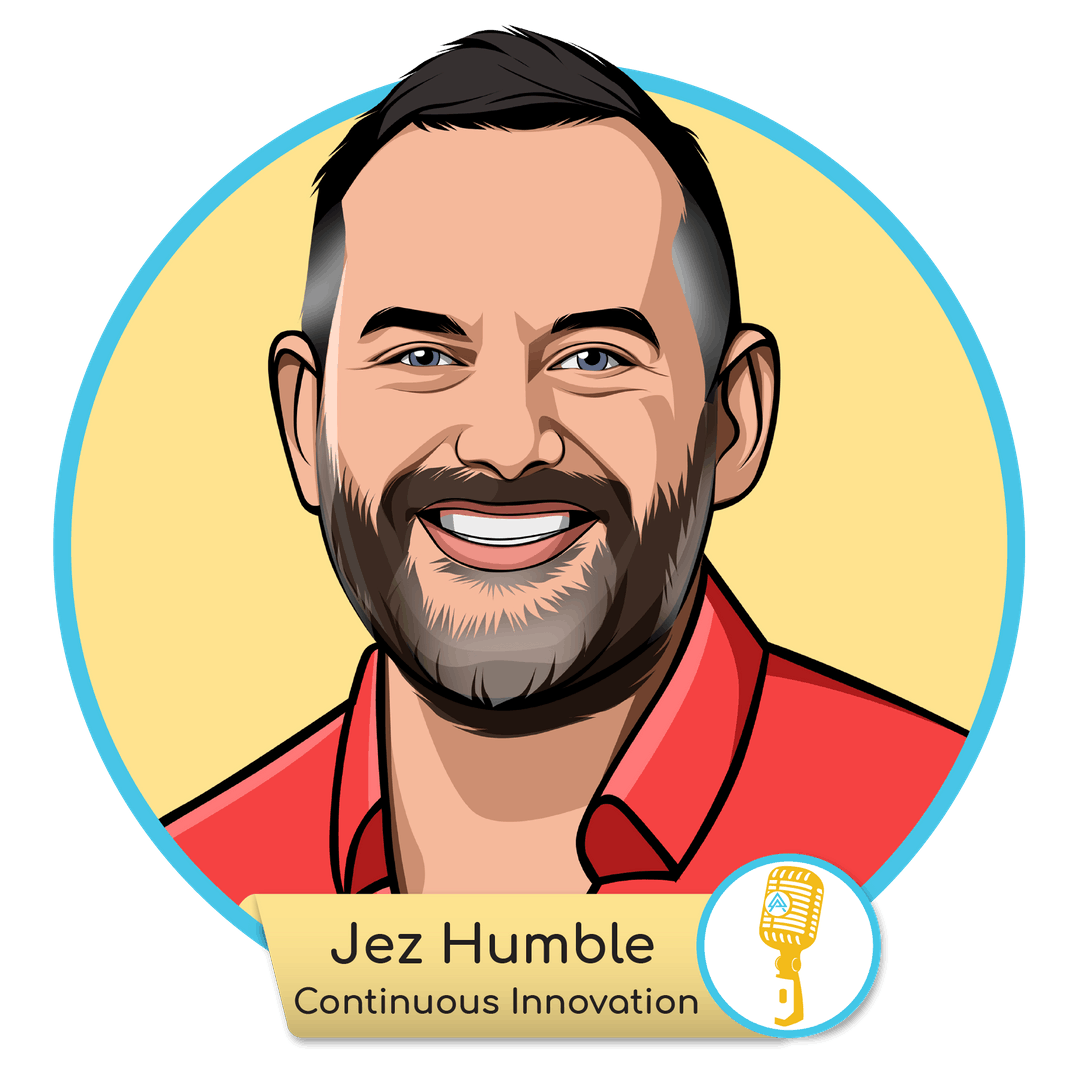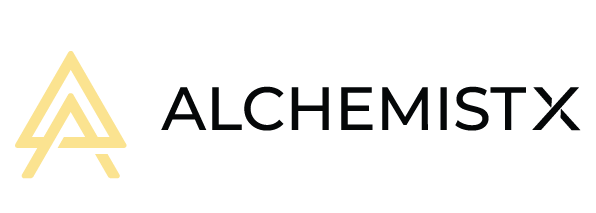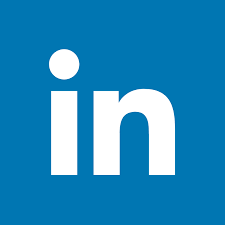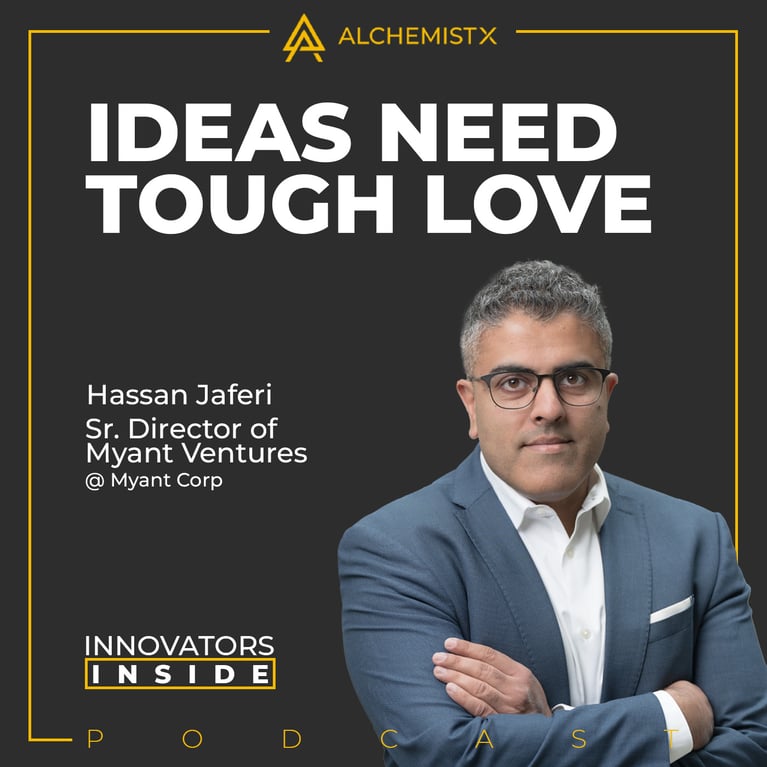Discover how Maura O’Neill, founder of The Decade Project and former Chief Innovation Officer at USAID, is redefining entrepreneurship to reflect America’s true diversity. Explore her framework for inclusive innovation, access to capital, and bold change.

AlchemistX: Innovators Inside
E.13: Jez Humble: Continuous Innovation
Published on
June 30, 2021
"All you can do is behave the way you expect other people to behave and live your own values and hope that other people see that and are inspired by that." - Jez Humble
Tags:
Show Notes
Rachel Chalmers:
Today, it's my great pleasure to welcome Jez Humble. Jez works in Site Reliability Engineering at Google. He previously co-founded the amazingly influential DevOps Research and Assessment DORA with Nicole Forsgren and Gene Kim. They conducted the annual State of DevOps Report and also co-authored Accelerate, which is the essential book on how to increase your daily deploys.
Jez came to DORA from stints at 18F. The legendary Obama-era federal agency that modernized a whole swath of digital services and thought works - the consultancy that employs about half of the smartest people I have ever met in the industry.
You and I met at Chef Conf, what seven years ago now? You made a point of introducing yourself because I was involved with the Ada Initiative, which is a non-profit supporting women's involvement in open technology. That blew me away because even at the time, that was something I more usually had to defend than receive adulation for. I realized immediately that you were someone who's already thinking about the ethical ramifications of the work that we do.
Jez Humble:
Yeah, that's right. Thank you so much for your work with Ada and the other work that you do on diversity, equity, and inclusion - it is very inspirational.
Rachel Chalmers:
That's why I do it, just to inspire.
Can you talk about the challenge of centering humans in the work that you've done around corporate Innovation?
Jez Humble:
When I consider it, I divide it into two bits. Firstly centering humans as our users and our customers. Also centering humans in our employees as well. Those are two things that really get lost very easily in Enterprises. So in terms of users, this was for me, the biggest shift I've seen during my time, doing software delivery is making user experience central to the work we do - building it into the delivery process. It was something we focus a lot on in thought works, not always successfully but we definitely tried.
I mean, I remember the very first Thought Works kind of away day that we did. When I joined in 2005, I went to this workshop by Luke Barrett who's now sadly passed away - where he talked about user experience design and its centrality for Agile. It really blew my mind and I went to his workshop where he talked about doing discovery as part of the delivery process and never doing any delivery without first doing discovery.
These ideas are now central to the way you work. We use those a lot in 18F as well. A big piece of that was user centered design and bringing users, rather making users central to everything that we do. It's hugely important and it's something I think we still struggle with. As an industry especially in an enterprise context where you just get so lost in being in your part of the process. It's so hard to actually move out of the little box that you're in.
There's this piece of lean thinking, which is about this value stream mapping. Value stream mapping always starts and ends with the customer. That's why I think it's so important to focus on value stream mapping as a start to any kind of transformation effort. Because again, it focuses you on the customer and how work flows from the customer and back to the customer. That's a big piece of Lean, and it's a big piece of Agile if it's done properly. There's still so much work to do. I think it's also important in terms of employees and this is another thing that's a pillar of Lean is a respect for people. We are still, despite 20 years of Agile now - I see this all the time in organizations, where they are like, “We're going to adopt Agile. Everyone's going to follow exactly this process that's set out in this document, and there will be no deviation.”
Rachel Chalmers:
Rigid Agile!
Jez Humble:
Right? It's like, "Well, actually, the companies that are successful, and we saw this at 18F in the US federal government and at Google where I'm working now, it's all about empowering teams and creating cross-functional empowered teams. Where the decisions are made at the level of the work that's being done. Where people have the most information and this is still an area where there's so much to be done. Working out how to create organizations that are humane and which empower people and create autonomy. I still have McGregor's Human Side of Enterprise on my bookshelf which came out in 1960 and we're still not there yet.
Rachel Chalmers:
I got to say, I feel starry-eyed about the early to mid teens. It felt like NASA - the amount of documentation that your guys pumped out around design thinking and human centered design that is still on the web and accessible.
I point startups and internal corporate teams to it all the time. But it was that whole idea of - I talk a lot on this podcast about how a corporation is a group of people, collectively hedging risk. The US government is probably the biggest insurance operation in history. When it's working as designed - large caveat. The exciting thing about 18F was that it was human centered at the team level, and it was a huge hedge against risk at the governmental level. That's kind of the dream for anybody who grew up on stories of the Manhattan Project and the early days of space is - what if we could really use our technical skills in a way that contributed to some very large human endeavor?
Sorry to get my starry-eyed geek on.
Jez Humble:
I think that's absolutely right. It was an amazing time and this is one of the things that I find so depressing about our political environment is that, when the government works - it's amazing. When it's done with a focus on empowering citizens, it's really great. It goes hand in hand with the idea of democracy. The idea that it's the rule of the people by the people. That just immediately suggests the concept of citizen focused design or user centered design and we did it and we've done it again and again and safely. It was definitely one of the highlights of my professional career.
Rachel Chalmers:
I think I've talked to you before about Postwar, the book by Tony Judt. The Princeton historian who put into context things like the Eisenhower Interstate highway System and the National Health Service in Britain as reactions to the carnage of World War II, as ways of building societies that would maybe be more resilient against that happening again. The real tragedy of our generation as Gen X is the very diligent work the neoliberals did in the 80s to dismantle the entire post-war consensus that had given in my case, free tertiary education. Many of us really were buoyed up by that infrastructure which has since been taken to pieces.
Jez Humble:
Yeah, absolutely. I think we all saw it happening at the time. I was definitely very active in student politics when I was at College where like you, I got a free tertiary education. I think we could see even then what was going on.
Yeah, it's incredibly depressing. I really worry about the future for my children. I would like to think that we can turn it around. So yeah, still working on that.
Rachel Chalmers:
You've kind of half answered this already but when you look back on your career, what are you proudest of?
Jez Humble:
That's a difficult question to answer. Because I think in a very day to day way. To be honest, most of my work is based or prioritized on what's pissed me off most.
Rachel Chalmers:
There's nothing wrong with a career path powered by spite, always just trying to throw it in the face of that one teacher who told us we'd never amount to anything, right?
Jez Humble:
But for me, it's like people being wrong on the internet and then really not really nursing whatever feeling I got from that.
Rachel Chalmers:
It's an inexhaustible well because people are so wrong. So many people are so wrong on the internet.
Jez Humble:
They just keep being wrong and then a whole new generation of people comes out every year who continue to be wrong on the internet.
Rachel Chalmers:
If we could harness being wrong on the internet as a source of energy...
Jez Humble:
My God!
Rachel Chalmers:
We would have an inexhaustible supply that would be the true solo punk luxury, gay space, communism that we dream of.
Our listeners should know that Jez just fell over laughing at my relatively weak joke.
Jez Humble:
I think you need to drop the mic Rachel, I think we are done.
Okay, well, back to your question. Obviously proud of the books that me and my collaborators have written over the years and that's been exhausting. I never recommend writing books. I recommend having written books. I’m very proud of the 18F. Cloud.gov. I'm particularly pleased with that. It was something that was started before I joined 18F, but I was very lucky to be able to participate in helping to make that a reality. The fact that we built a platform as a service in the federal government, using continuous delivery with a team of less than 10 people. Which was then subsequently used by the FEC, the US Air Force signed off by the Department of Defense Department of Homeland Security, and GSA.
You can actually use modern Agile continuous delivery user entered methods in the context of the federal government. I tend to go on stage and be a bit of a dick and say things like, “Well you know we can do it in the US federal government. What's stopping you?” Very proud of having been a part of that. Generally most proud when you get something done and then it turns out to be useful to other people. That's really living the dream.
Rachel Chalmers:
Yeah. What do you think makes Corporate Innovation in particular so difficult? I've called it playing Innovation on the highest difficulty setting.
Jez Humble:
It's the fact that organizations that succeed in order to continue working as they grow have to codify things. The culture that made them successful becomes both invisible and intangible and holds a vice-like grip on the organization. People just see it as the way things are. They don't think about why it was that way and whether it's still appropriate. I think that is the biggest factor. That the culture and the decisions that have been made and the way of making decisions put you into a very narrow groove that you can't really even see unless you're paying attention.
When people do see that, they often think we have to change the culture. That's really hard to do because the culture is the thing that made the organization successful. You're saying we should stop doing the things that made us successful - that seems risky. That's really tricky to do. Then in a very tangible sense, in the context of building products in particular - you've also got all the enterprise architecture decisions that have been made that prevent you from getting stuff done.
I really think, when I look at organizations that are successful in Innovation, it's because they're always trying to get better. Out of all the work that we did at DORA, one of the most popular was benchmarking against other organizations. People always love to see how other people are doing. I really think that's a red herring. It is possible to derive lessons from comparing yourself to others, but I think it's more powerful and important to think about how we can do better than ourselves, how we can improve ourselves and dedicate capacity to doing that on a daily basis. I think that is really at the heart of what makes organizations able to adapt and change in the face of a changing environment and a way to harness the skills and abilities of the people.
Rachel Chalmers:
I've long thought about enterprise architecture as archaeology. Because to a first approximation, no one makes terrible enterprise architecture decisions. They always make the best decision they can with the technologies available to them at the time. We just sort of level them over and keep building more and more stuff on top.
Like all of these cities underneath the city. Like London being actually 17 feet deep under the sidewalk with older London's. So there's this element of civic engagement in a Corporation where what makes a city great - it's that everybody wants to be there. What makes a company great - it's that everybody is committed to making it the best company that it could possibly be. Even though they're standing on this 17-foot mound of other people's architectural decisions. It can be done. It's less a change of culture than a change of incentives almost. A change of what is seen as admirable and worthy of emulation.
Jez Humble:
That puts so many trains of thought in my mind. One is that people get into this mindset that - and again caused by incentives. It's too hard to change the way we operate. The enterprise system that is mission critical that we don't have the source code to operate anymore. That is indeed a hard problem. But one of the things that I love about going to good conferences is seeing talks where people have just totally overcome that.
I went to a talk at the continuous delivery conference in Seattle pre-COVID. Where a couple of people from Ticketmaster gave a talk about how they had taken Ticketmaster’s core system, which ran on VMS - sorry which ran on VAX, not VMS. They actually didn't use VMS, they used their own operating system because they built their own operating system. Their nickname for VMS was “VAX made slow.”
Rachel Chalmers:
That wasn't their nickname! That was what we used at Trinity College in the 90s!
Jez Humble:
Really?
Rachel Chalmers:
Yes, that’s an old one. I haven’t seen a VAX machine in a long time.
Jez Humble:
I mean VMS was a pretty revolutionary operating system, right? I mean, I've never used it personally, but I heard these amazing things about it.
Rachel Chalmers:
It was no Unix, but it was pretty good for what it did.
Jez Humble:
It had a versioning file system. You could do multi-site fail overs with zero down time. I heard this story that the Amsterdam police moved their VMS system from one site to another site with zero downtime, which I thought was pretty cool.
Rachel Chalmers:
Wow, that's amazing.
Jez Humble:
Anyway, they have this VAX system that they built, which is how Ticketmaster processes all its tickets. They basically moved to a continuous delivery model basically by running the whole thing on kubernetes. Which I thought was amazingly badass. You can do it and I've got loads of stories over the last 10 years that I've collected precisely because people say, “Well, that won't work here. We've got XYZ problems.”
What the overwhelming message of the last 10 years of my career is, it is possible, it's hard, but it's possible. You can do it anywhere. I've seen people do stuff with firmware. I've seen people do stuff in the mainframe systems, VAX, whatever, you name it. It's possible to do it. I think one thing is like working in a culture where you feel empowered and inspired to try new things and to experiment in a way that's safe to fail obviously. That's one piece of it, and I really liked your archaeological metaphor.
Rachel Chalmers:
I stole it from Vernor Vinge, I can't claim credit for this. It's in A Fire Upon The Deep I want to say, where our protagonist is digging down through his Starship’s computer systems, and finds out that the system clock started at around the same time that humans landed on the moon. You're reading it and you suddenly go, “Oh! It's Unix!”
Jez Humble:
Awesome!
Rachel Chalmers:
Vinge actually has software archaeologists, who dig down through this stuff. I've been using that metaphor and not attributing it correctly.
Jez Humble:
Well now you set the record straight. The other metaphor that I really like for this is the ecological metaphor. Martin Fowler talks about the Strangler fig as a metaphor for architectural change based on if you go to tropical jungles. They have these Strangler figs growing around the old trees. It's this idea that there is never a perfect state and I think this is the fallacy that people face in enterprise architecture. It’s that they are looking for the perfect architecture and there is no perfect architecture. It is always context-dependent. Based on the problems you're facing right now. The goals you're trying to achieve and the problem you're trying to solve. That's always going to change over time.
Accept that there is no perfect architecture and everything you do is contingent and will be replaced. I think that attitude is really important and insufficiently appreciated. It's caused a lot by turnover at senior executive levels. Some VP comes in and they put in place a two-year plan and they want to deliver it in two years so they can put it on their resume for their next VP gig somewhere else. That drives a lot of the shitty behavior and problems that you see in enterprises.
Rachel Chalmers:
I think that's very true.
How would you distill all of these stories into concrete lessons for our listeners?
You talked about creating an environment where it's safe to fail. How do you do that? How does that happen in practice?
Jez Humble:
I hesitate to say it because it sounds like I'm being a bit of a dick, but what I've discovered through having children, is that most lessons that I learned the hard way through consulting are actually about how to take care of people. You are obviously very familiar with this since you have kids of your own. You don't tell kids what to do, you model behavior and they copy it. So much of effective leadership is just modeling the behavior you want other people to follow.
People spend a lot of time trying to tell people what to do, and it just doesn't work because they've got their own agenda and they've got their own things that they're passionate about. You're not always going to be able to inspire them or influence them at a level that makes sense. All you can do is behave the way you expect other people to behave and live your own values and hope that other people see that and are inspired by that. I think that's probably what I always aim towards - not always successfully.
Rachel Chalmers:
Even before we had kids, I had read David Deutsch’s The Fabric of Reality. I looked up his webpage and he was also part of a group called Taking Children Seriously. It was a parenting movement that was about not being authoritarian in your parenting but acknowledging that children are time-shifted adults and that the end goal is to have an adult that you want to spend time with. Authoritarian methods tend to discourage that. That was really influential for me and as you were speaking, I realized that it actually became a big part of the way I interact with colleagues as well. Trying not to think that people are wrong or stupid, but trying to understand the context in which their position makes sense.
Jez Humble:
Yeah, I think that's absolutely right. That informs a lot of my thinking as well. I haven't read that book. I should. I can't read at the moment for some reason. My attention span is so screwed up.
Rachel Chalmers:
It's almost as if there's some cognitive load that we're collectively under. What could that be?
Jez Humble:
I think that and also just because of my personal background that that's the frame that I use all the time - is trying to understand why people behave the way they behave rather than reflecting on their behavior. That's useful just in general in life.
This is a conversation I have with my kids all the time when someone's being mean to them. I will try to reframe it as, “What do you think is going on with that person?” Trying to help them understand that it's not about them when someone's mean to them. It's not about you. You shouldn't take that as a reflection on you, you should take that as a reflection on the mental state of the person who was mean to you and why that is. I think that's a really useful frame for thinking about corporate life and professional life as well. The only problem with it is that it can lead to this kind of very anthropological, kind of observer mindset. Sometimes you have to intervene and I think that's another thing that I struggle with a lot is when to switch from trying to understand context and understand the forces acting on people. To get to a point and actually say, “Okay, now we have to change what we're doing.”
That's tricky.
Rachel Chalmers:
I always find it almost a relief when those moments do come. When there's some kind of crisis and I know what needs to happen. I've done a lot of things like neighborhood emergency response training. That sense of, here's an anti-pattern and I know what the playbook is. I know if I step in here and run this playbook, we'll get to a better outcome. I guess it's the adrenaline charge of just knowing that I have something to contribute in that moment. But yeah, my tendency is much more to be an observer.
Jez Humble:
Yeah, and I mean that brings me nicely onto what I'm doing right now, which is site reliability engineering. What you described is exactly what we do. We observe situations and we observe context and then we create playbooks. So that we can spot patterns that we have seen before and be able to act appropriately. You're acting back on the system to change its behavior and provide better tools. That evolves the playbook as well.
There is something very satisfying about being faced with a crisis and being able to say, “I know what to do.” Or even if you don't know what to do, being able to say, “Well, here's a heuristic that will help me understand what's going on so that I can do something.” Or being able to say “Now I'm going to get these people involved.” It feels like you're doing something useful. I think for me right now that feels like a real tonic.
Rachel Chalmers:
It is. I think it's one of the great unsung benefits of being in your mid-to-late career. You talked about all of the stories that you collected in 10 years on the conference circuit. Being able to lean back on experience is something I absolutely didn't have when I was new in the industry. It's such a relief and I guess that's a psychological insight into why Corporations are reluctant to change. Because they are resting on that body of experience and novelty is a threat to that.
Jez Humble:
Yeah, it's very comfortable. This is what I told my students. I teach at UC Berkeley. Students often ask for career advice and there's a piece which is, on the one hand when you first start a new role it creates a great deal of anxiety. You're thinking about, “Will I succeed? Am I going to look stupid? How am I going to learn all the things that I need to know to be successful?”
That's not a nice feeling. I certainly worked really hard to try and overcome that. Then at some point you gain sufficient expertise that you can feel a bit calmer about things. That's nice and it's comfortable and you want to stay with it. I think it's really important to try and push through that and then place yourself in another situation where you don't know as much and you put yourself in a state where you are vulnerable again. Because otherwise you stop learning and you stop changing things. That's very difficult to do psychologically.
It's one of these places I think also where power structures are important. It's harder for marginalized people to do that than it is for people like me to do that. That's important to acknowledge. But you've kind of got to keep doing that both organizationally and as a human being. That's something I've tried to be pretty good about in my career. Like going to 18F, for example.
The first three months I was put in charge of running their cloud stuff and I had never used cloud stuff in Anchor or been responsible for it. It was terrifying. I got the keys to these accounts that were huge accounts for major federal government agencies, and now I was in charge of them. I felt really scared and anxious that I was going to screw everything up. It took me several months to get over that to the point where I was comfortable. Then I just massively accelerated. I was able to get a lot of really great stuff done that I was really proud of being a part of. I think you've got to keep doing that in your career, especially in technology. If you're going to technology with that idea and to become an expert in something and that's going to be it, I think you're going to be seriously disabused of that notion pretty rapidly. You see people who aren't and who've been kind of doing the same thing for decades. I understand that because it's nice that the feeling of being the expert and being the best person in the room and all that. But there's a danger associated with it as well.
Rachel Chalmers:
There is! I think the complementary pleasure to the wisdom of experience is curiosity. Just the pleasure of finding things out. When you're in a place where you don't have that cushion of experience, I've often found that exploring the systems and figuring out what fits with the other piece and mapping out the environment, is its own dopamine hit. That can get you through those early days.
Jez Humble:
Yeah, absolutely.
Rachel Chalmers:
How do you personally avoid burnout?
Jez Humble:
Someone tweeted this recently and I am just going to get the Tweet up. This is a tweet from Jennifer Kim, whose Twitter Handle is @jenistyping and she writes, “Common behaviors that get rewarded in the workplace but often are actually trauma responses: Perfectionism. Savior complex. Never Things that don't get encouraged by traditional workplaces or managers but are still important for you to practice: Identity self-worth - that's independent of work. Trust in your instincts. Boundaries, boundaries, boundaries.” I think that really encapsulates rather well both the contexts of why burnout happens and how you solve it.
Rachel Chalmers:
I love that tweet. It reminded me of those slides I always showed your students. Giving them the business books that all of the VCs are going to recommend them to read and say, “Here are the books that I found really helpful.” When is then like a whole slide of books about trauma.
Jez Humble:
Absolutely.
That's been my experience as well. I’m actually doing my work in therapy and understanding how I can be better. You've got to do that. So much of the mythology of Silicon Valley is about disruption and changing the world. There's this quote from Tolstoy that I love which is “Everyone thinks of changing the world, but no one thinks of changing themselves”. That for me is the flaw of the heart of Silicon Valley. It is that you've got to sort yourself out before you can help other people.
So much of it is where we live in a very kind of late capitalist society. Where so much of what we're doing is giving ourselves up to the machine in order to generate profits. One of the phrases I'm really happy has entered the popular lexicon is “self-care”. This idea that you've got to take care of yourself. That is a radical act and which unfortunately isn't in a late capitalist Society. Self-care and boundaries are a really big piece of that that I think it’s really important. Being able to say, “No, I'm not going to devote my whole life to work.” I'm going to develop things that are important to me out of the work context. I'm going to be able to say “no” to people and not in a mean way, but just say, “No I can't do that right now.”
I think there's things that can help with that if you do them properly. Setting targets for yourself and being able to say to people, “Well that doesn't contribute to any of my goals at the moment so I can't help you with that.” That's part of the culture of Google and something that I actually really like. It's okay to say “no” to people. Not always, it's not always a safe place to say “no”. We actually have a structure, a bureaucratic tool that allows us to say “no” in a safe way. I think that's just one example of an area where bureaucracy and process can actually help you.
Rachel Chalmers:
It can. But necessary acknowledgement that a lot of these self-care techniques are unequally distributed according to levels of societal power. It's easier for you and me as white people within higher education to say “no” than it is for other folks in the tech industry. The point you're making was a really good one in that the goal-setting gives a certain amount of agency over how their time is spent. Going back to our discussion of trauma. The clinical definition of trauma is being trapped in a situation to which you can't respond. In which your fight or flight and freeze informed responses are constrained in some way. That adrenaline isn't discharged.
What are some ways that we can give autonomy and agency to folks in this context of late capitalist Corporate Innovation?
Jez Humble:
Yeah, I mean, you remind me of a book that I read a few years ago that I really like called Why Zebras Don't get Ulcers.
Rachel Chalmers:
Robert M. Sapolsky, a favorite!
Jez Humble:
Yes. So he has this nice passage in there where he talks about how the best way to create anxiety is to give people responsibility, but not the authority to actually meet those responsibilities. Which I think goes rather well hand-in-hand with what you just talked about in trauma.
This is why I focused so much in my talks in my research, on autonomy and building teams with autonomy and delegating responsibility. I think that's hugely important, because it's what enables Innovation. The idea that all the best ideas come from the top of the organization is nonsense. That's basically what you're saying when you have a command-and-control culture. So how do you best harness the Innovation of your people and give them the tools to get it done? That's not a problem you can solve with hierarchy. It's a problem you can only solve by delegating authority. I think that is the important thing. “How do you delegate authority, but not create chaos?”
I think that's what an effective bureaucracy does. It delegates authority without creating chaos. It creates well-traveled grooves or context that you can work within. This is something I found in creativity in general. Creating constraints for yourself actually helps with creativity because it limits your degrees of freedom so that you can have a structure to work within and that's enormously important to be creative. I think that's what effective organizations do. This is something I see at Google actually that I really love.
When I joined Google, I wanted to take the research that we've done at DORA and publish it. A lot of organizations you'd have to go and get a budget and you'd have to go and assemble a team and we'd have to create a bunch of tickets and get approval for things. Well at Google everything is checked into version control, all the configuration for everything. I was able to create a website and build it and I had to get approvals for all of my changes but you can just do that at Google. I can create a ticket to create a configuration for a load balancer and an SSL certificate and someone on the team that manages that will look at my pull request and give me feedback or approve it typically within 24 hours and you can just get stuff done.
That's incredibly powerful but it's because we built this platform. There's loads of platforms at Google for doing all kinds of things that constrains you. You have to use the perforce client basically, to do this stuff and we've obviously got our own client, but you've got to use the tools that we have. You can't use your own choice of version control. You can’t use your own choice of build. You have those constraints, but very well designed constraints that are incredibly powerful.
Rachel Chalmers:
It's worth thinking about.
I just wanted to call back to your comment about command and control. That's one of the places where it's worth thinking about why a command-and-control structure was built in the first place. It was in response to the Manhattan Project. It's easy to look at the technological achievement of the Manhattan Project and go, “Yeah, that was extraordinary.” But societally it was a disaster in the beginning of an unending Cold War. These weapons were so powerful, they were the literal distillation of the power of a state. It’s still in a world where no non-state actor has managed to build one because of the resources required. Thank God that you had to build command-and-control around them because they were so dangerous. When you see a command and control hierarchy in the wild, it's worth asking, “What is the dangerous thing that that hierarchy exists to protect?”
Jez Humble:
I think usually the answer is to protect the power of the executives and their shareholders.
Rachel Chalmers:
Conversely I think one of the things that the FANG company's - Facebook, Amazon, Netflix, and Google have done well, is they witnessed the 50 years of Innovation and disruption from outsourced Innovation that overturned giants like Sun. They've created ways for start-up-like structures to exist under the umbrella of the Corporation. So that engineers, who in a previous world would have left to do a start-up, are now getting the kind of career satisfaction and rewards from working within those constraints - that they would otherwise have done out in the Venture Market.
Jez Humble:
Yeah, I mean tremendously, good places to work in many ways.
Rachel Chalmers:
What is the best way for our listeners to connect or follow your work?
Jez Humble:
I use Twitter a lot. That won't necessarily work though. I have been known occasionally to post about computers on Twitter. I have a site called continuousdelivery.com, which has links to a bunch of stuff that I've done. Our research program DORA, a lot of that material is available at cloud.google.com/devops. So we've published guides to all our capabilities, the last six years of DevOps reports and a nice little tool called the QuickTrick that you can use to see how you're doing and compare yourself to other people in the industry as we discussed. You can get recommendations for what you should work on in order to get better at software delivery. A lot of that material is creative commons. I'm really proud of the fact we've been able to take all that material and research and put it out there in a way that is easy for people to access and build upon.
Rachel Chalmers:
An amazing resource.
If you could wave a magic wand and have the most rosiest, optimistic, best future of our industry imaginable - what would that look like?
Jez Humble:
The way my brain works, I tend to look at dysfunction and use that as a starting point - imagine the opposite. The one thing that really pisses me off is that so much Innovation is focused on corporate profits and engagement. That really has been at the heart of all the problems we've seen. Social media has basically been focused on how we engage people to keep making money out of them. That creates enormous amounts of dysfunction.
I'd like to imagine a world where we use technology to fundamentally remove structures of oppression. Where we use it to truly democratize society in a way that actually helps marginalize people. Rather than continuing to promote and reinforce structures of oppression. I don't know what that would look like because I don't think we've ever tried it. What I do know, is that the only way to do that is to actually listen to and give power to marginalized people. How do we build systems that do that? We don't know the answer yet, but I think there's a clear path forward if only we would take it.
Rachel Chalmers:
You and I both grew up in countries where we had free college and single-payer healthcare and for those to be considered, extremely radical positions now in the United States is a little bit bewildering.
Jez Humble:
Pisses me right off.
Like, radical socialism, how is universal healthcare radical socialism?
Rachel Chalmers:
I would put the in the class of those things that I get starry-eyed about. I think it's one of the greatest human institutions ever created.
Jez Humble:
Yeah, I talk about this all the time.
Rachel Chalmers:
I know you're not reading much at the moment, but do you have any Netflix recommendations? Any albums that have been your jam?
Jez Humble:
Yeah, I May Destroy You.
Rachel Chalmers:
It's so good. It's so extraordinary!
Jez Humble:
A really exceptional piece of art. It's so gripping and compelling and instructive. I learned so much about humans in general and what consent really means in the many different ways that consent can be violated. Coel is just just so brilliant. It does that very British thing of being extremely dark and very funny at the same time. I mean it's gripping and compelling and just brilliant but also such a deep and powerful meditation on consent. It is also so timely and it really forces you to think very deeply I think if you engage with it. Just like modern art in the greatest sense of the word.
Rachel Chalmers:
Really an extraordinary achievement and despite the darkness of the themes that it deals with, really not cynical. It has a sweetness at its core that I found incredibly compelling. The backstory is also fascinating. Michaela Cole who wrote it is a very, very young creator in the television industry. This is her second show. She wasn't happy with the terms of the first show so she just went in and negotiated until she got the contract that she wanted. When she didn't understand something in a negotiation, she would just keep asking until somebody explained it to her in simple enough words. She's managed to create a position of power just through sheer persistence and talent, which is very inspiring.
Jez Humble:
Yeah, she's Kick-Ass. I can't wait to see what she does next.
Rachel Chalmers:
She's so great.
If you liked that, I also highly highly recommend Fiona Apple's last album, Fetch the Bolt Cutters - similar themes.
Jez Humble:
You know, my wife had like a whole month where she just had that album on repeat because she just found it so powerful.
Rachel Chalmers:
It really is another work of art.
Jez, it's been a delight as ever. We should do this more often.
Jez Humble:
Absolutely.
Rachel Chalmers:
Thank you so much.
Jez Humble:
Thanks for having me.
References
DORA - DevOps Research and Assessment co-founded by Jez with Nicole Forsgren and Gene Kim. They all conducted the annual State of DevOps Report and also co-authored Accelerate together
Cloud.gov - A project Jez was involved with while at 18F.
Postwar - A book by Tony Judt. The Princeton historian who put into context things like the Eisenhower Interstate highway System and the National Health Service in Britain as reactions to the carnage of World War II.
Human Side of Enterprise - A book by Douglas McGregor that discusses themes in working out how to create organizations that are humane and which empower people and create autonomy.
Manhattan Project - An American response during the Cold War and referenced several times by Rachel.
Kubernetes - An open-source container-orchestration system for automating computer application deployment, scaling, and management.
Unix - A family of multitasking, multi user computer operating systems that derive from the original AT&T Unixl
VMS - A multi-user, multiprocessing virtual memory-based operating system designed to support time-sharing, batch processing, transaction processing and workstation applications.
VAX - A CISC instruction set architecture (ISA) and line of supermini computers and workstations developed by the Digital Equipment Corporation (DEC) in the mid-1970s.
Value stream mapping - A lean-management method for analyzing the current state and designing a future state for the series of events that take a product or service from the beginning of the specific process until it reaches the customer.
18F - A technology and design consultancy for the U.S. Government that Jez worked for before Google.
Chef Conf - A conference in which Jez and Rachel met each other
Ada Initiative - An organization Rachel was apart of that Jez admires which supports women in open technology and culture.
A Fire Upon The Deep - A book by Vernor Vinge. From this book, Rachel references a plot point that deals with Unix.
Strangler fig - Is an article by Martin Fowler in which they use this fig as a metaphor for architectural change.
@jenistyping - A person on Twitter Jez follows who used the platform to make a statement about burnout.
Leo Tolstoy - A Russian writer who Jez quotes.
Why Zebras Don't get Ulcers - A book by Robert M. Sapolsky that deals with stress management.
Sun Microsystems - Was an American technology company that sold computers, computer components, and software
NHS - A model of social healthcare referenced by Jez and Rachel.
I May Destroy You - A British comedy/drama loved by Jez and Rachel that deals with consent and sexual assault. The show was created by and starring Michaela Coel.
Recent Episodes

How to Build, Scale, and Safely Deploy AI in Business
In this episode, Ron Green draws on over 30 years of hands-on experience in artificial intelligence to reveal how companies can unlock its full potential.

.svg.png)









